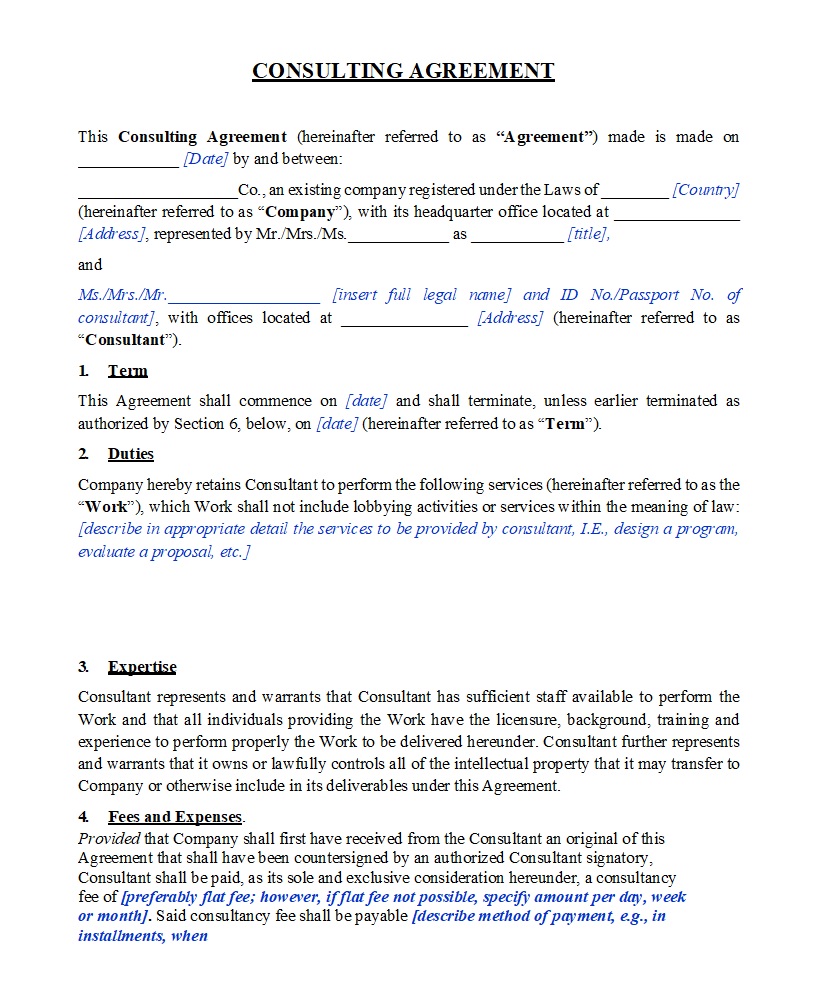A Consulting Agreement (CA) is a formal contract between a consultant and a client. It defines the professional relationship and sets out the terms under which consulting services will be delivered. This document helps both parties understand their rights and duties, reducing the risk of misunderstanding during the engagement.

Definition and Purpose
The purpose of a Consulting Agreement (CA) is to establish a clear framework for service delivery. It explains what the consultant will do, how results will be measured, and how payment will be handled. The agreement ensures that both sides operate under shared expectations and comply with legal and professional standards.
Structure and Main Elements
A well-drafted consulting agreement usually includes:
- Scope of Work: Defines the services, methods, and expected outcomes.
- Deliverables and Timeline: Specifies milestones and completion dates.
- Compensation: Details fees, payment schedule, and reimbursement terms.
- Confidentiality: Protects sensitive business or client information.
- Intellectual Property Rights: Clarifies ownership of any work or materials created.
- Termination Clause: Describes how either party can end the agreement.
- Liability and Indemnity: Limits exposure to claims and responsibilities.
Each clause ensures that the consulting relationship remains transparent, accountable, and legally enforceable.
Importance and Application
Consulting agreements appear across industries such as management, technology, finance, and design. They formalize the consultant’s role as an independent contractor, not an employee, and outline the professional boundaries of the service.
For example, a company may hire a digital strategy consultant to improve its online operations. The agreement defines project phases, reporting frequency, and intellectual property ownership for the created materials.
This approach ensures smooth collaboration, financial clarity, and compliance with employment and commercial laws.
Best Practices
Before signing, both parties should review the agreement carefully. Every term—especially those covering confidentiality, payment, and termination—should reflect mutual understanding. Legal review helps confirm that the document aligns with local regulations and professional standards.
A well-structured consulting agreement protects both consultant and client, promotes transparency, and supports a successful professional partnership.
Check out more pages of our website for related content:
Access the Full Contract Directory Index
You can browse the complete alphabetical list of all commercial, financial, and project-based contract templates by visiting our A–Z Contract Index.
References:
- World Intellectual Property Organization (WIPO) – Contracting and Consulting Services
- Project Management Institute (PMI) – Professional Consulting Frameworks
- American Bar Association (ABA) – Consulting Contract Essentials
has been added to your cart!
have been added to your cart!



